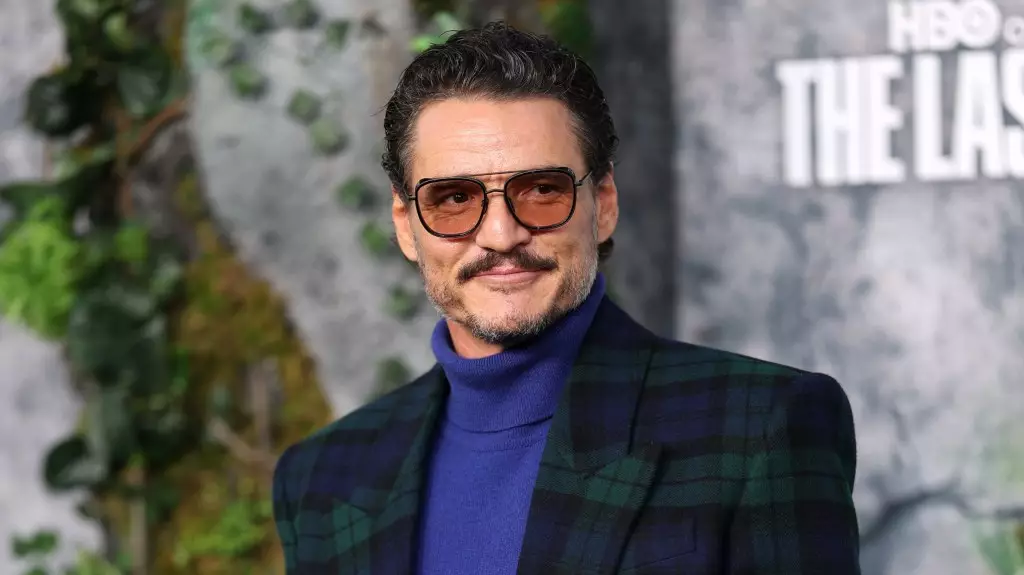Pedro Pascal is no stranger to high-profile roles in genre entertainment, yet his latest venture into the Marvel Cinematic Universe (MCU) appears to be a daunting test of both talent and resilience. In “The Fantastic Four: First Steps,” Pascal takes on the role of Reed Richards/Mister Fantastic, carrying the weight of expectations that previously sank adaptations of these beloved characters. As the fourth attempt to bring Marvel’s first family to the silver screen, this film promises to be a significant departure from earlier adaptations, adding layers of complexity and depth to its iconic characters.
What makes Pascal’s admission of intimidation particularly fascinating is the context of his impressive career trajectory. From “Game of Thrones” to “Narcos” and “The Last of Us,” Pascal has navigated the challenging waters of audience expectations and critical scrutiny. However, the high-stakes atmosphere surrounding a Marvel property, which straddles a legacy of comic book lore and cinematic expectations, places this endeavor in a unique category. His concern for audience satisfaction and authenticity reflects a broader trend in today’s entertainment industry—an increased need for creators to strike a balance between fan service and personal integrity in storytelling.
Redefining Familiar Narratives
Alongside Pascal, co-star Joseph Quinn is reimagining the character of Johnny Storm, steering away from the tropes established in the past. His critique of the character’s previous portrayals raises a critical conversation about evolving narratives in film. The notion that a womanizing, carefree persona may not resonate in the current cultural landscape signifies an important shift. It highlights our collective consciousness around representation and sensitivity in character development, especially in tandem with the increasing demand for more relatable and authentic depictions of identity.
Quinn’s focus on self-awareness for Johnny reflects a growing recognition within the industry of the impact that outdated stereotypes can have. The modernization of this character could offer an opportunity for audiences to engage with themes that resonate more deeply, such as emotional intelligence and accountability. In an era where traditional masculinity is being re-evaluated, the intention to craft a more nuanced version of Johnny Storm could serve as a beacon for other franchises grappling with the evolving definitions of heroism and likability.
The Retro Futurism of the ’60s
Set against a backdrop of a fictionalized 1960s, “The Fantastic Four: First Steps” invites a fascinating exploration of retrofuturism. This stylistic choice can evoke nostalgia while simultaneously allowing for a critique of historical norms—both social and cultural. It provides a rich tapestry to examine how contemporary values can be interwoven with the foundational themes of family, loyalty, and heroism. As we delve into the implications of the era’s ethos, it’s crucial to recognize the potential this setting holds for reinvention, allowing characters to confront and challenge the cultural values of their time.
This intersection of past and future signifies not merely a visual aesthetic but a philosophical maneuver that can redefine how audiences connect with the narrative. Here, the intersection of character development and sociocultural critique can foster a more engaged and reflective viewing experience. Additionally, by pushing the boundaries of the narrative just enough, the filmmakers can cultivate a sense of adventure while ensuring the storytelling remains relevant and impactful.
Though the film remains shrouded in uncertainty, it stands as a testament to the challenges and opportunities inherent in modern cinematic adaptations. Pascal’s embrace of vulnerability as an actor reflects not only a personal journey but a collective challenge for the entire genre—one that calls for sensitive storytelling that honors both historical context and contemporary relevance. The success of this venture could define not only the future of “The Fantastic Four” but the ongoing evolution of character and narrative in mainstream cinema.


Leave a Reply